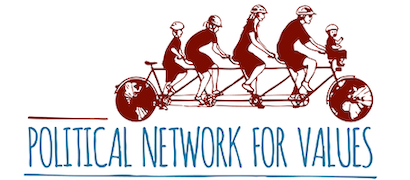Empowering political leaders, linking them, generating global and local exchange. Promote and defend life, the family and fundamental freedoms in an increasingly effective way. To develop topics, inspire actions, coordinate and articulate efforts. These are the tasks for the Political Network for Values (PNfV) that José Antonio Kast, its new president, considers as priority.
Kast replaces Katalin Novák, former Hungarian Family Minister and current president of Hungary. Born in Santiago de Chile in 1966, he is a lawyer, married to María Pía Adriasola Barroilhet, with whom he has 9 children. He founded the Republican Party, with which he ran last year for the Presidency and obtained an enormous support on the runoff. Today the Republicans are the first truly conservative political force in his country, and the third largest party in the Chamber of Deputies.
Kast is a consolidated reference for politicians and civic activists in Ibero-America for his consistent performance in the defense and promotion of human dignity and fundamental values during two decades. This is his first interview as president of the PNfV:
What does it mean to you to have been named president of the PNfV?
It is a great challenge to continue to empower political and social leaders around the world. I believe that together we can learn and grow networking, global and local exchange, to promote and defend the values and principles we believe in.
How did you receive the news?
I was thankful to the members of the PNfV and all their representatives; social leaders, politicians, experts, young people for giving me this great challenge. I take office with honor and with a great defiance of continuing the work done by Katalin Novák, now president of Hungary.
When did you discover the Network and how did you join it?
When I was a parliamentarian in Chile. I had the opportunity to participate in the Regional Summit of the Americas, held in Washington during 2015, then I joined the Network. In 2019 I was invited to join the Advisory Board.
How do you see the international panorama?
We live in troubled times: wars, economic challenges, political polarization. Societies have been devastated by ideologies and individualism, which demands a greater effort from us to recover our values and deepen the encounter of our communities. But we must not give up: we have to work and look to the future with hope.
What are the main challenges of the Network?
We must continue working for the protection of human life, marriage between a man and a woman, the family, freedom of education, religious freedom and conscience, which are being questioned and endangered in many countries these days. A key challenge is to connect with more leaders and activists in the rest of the world.
What are your main priorities for the Network?
It is essential that the network grows, increases its popularity among leaders and representatives worldwide. That is why meetings, whether face-to-face or virtual, are very important. Develop topics, inspire actions, coordinate efforts. These are some of the fundamental tasks we have. We will work tirelessly for our nations, for our future and the future of the next generations.



